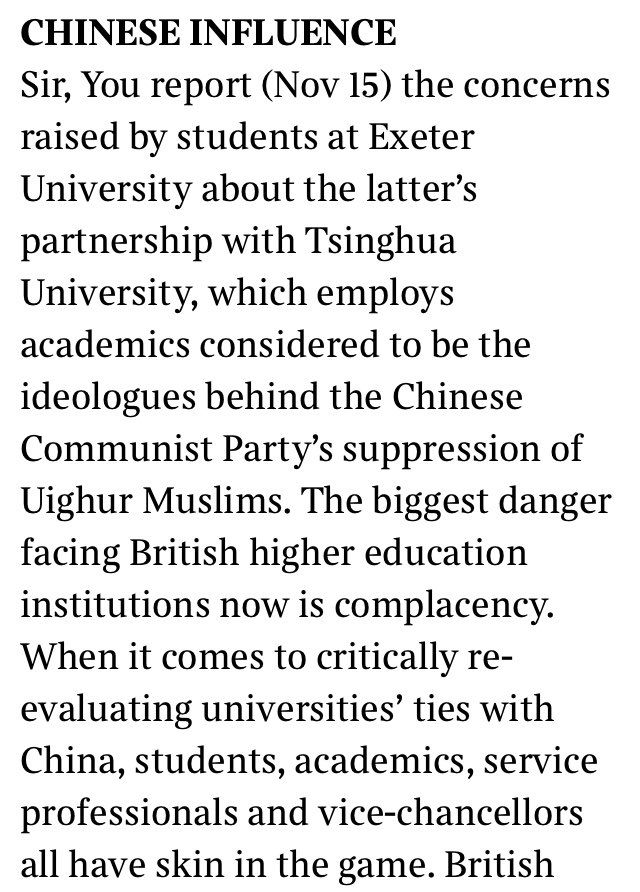
In my letter to @thetimes I call on British universities to adopt the Draft Model Code of Conduct (DMCC) developed by @AFI_WG. This would show that 🇬🇧 Higher Education institutions are serious about enhancing transparency and accountability in their cooperation with 🇨🇳 China /1 



The biggest danger facing British higher education institutions now is complacency. When it comes to critically re-evaluating universities’ ties with 🇨🇳 China, students, academics, service professionals and vice-chancellors all have skin in the game. The time to act is now /2
British universities agreeing to adopt @AFI_WG’s Draft Model Code of Conduct (DMCC) would be a game changer. Taking such a step would stand universities in good stead with the government, and adopting the code could help to prevent heavy-handed state regulation in the future /3
The Academic Freedom and Internationalisation Working Group @AFI_WG brings together academics from UK Higher Education institutions, who are supported by relevant civil society representatives and the All-Party Parliamentary Human Rights Group /4
You can learn more about @AFI_WG’s Draft Model Code of Conduct (DMCC) by following the link below #UK #HigherEducation #AcademicFreedom #Internationalisation /End hrc.sas.ac.uk/networks/acade…
• • •
Missing some Tweet in this thread? You can try to
force a refresh










